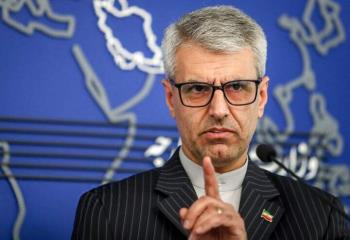Alwaght- The ongoing several-month political crisis in Iraq and the incapablity of the political factions to settle their differences have immersed Iraq into a full-scale uncertainty, making prediction of the future developments highly difficult. The certain issue is that with the passage of time, peaceful solutions to exit the crisis fade away and give place to worrisome and destabilizing replacements observable in the actions and decisions of the political parties and elites.
Since storming of the parliament by supporters of the Sadrist Movement on July 27, its leaders have been encouraging their supporters to arrange sit-ins the Green Zone of Baghdad.
Meanwhile, Moqtada al-Sadr's disregard for the proposals of the Shiite Coordination Framework (SCF) for negotiation to reach an agreement has caused the all-Shiite bloc to call for its supporters to take to the streets for sit-ins for "protection of legal frameworks" in reaction to Sadrists.
Aysar al-Jaderi, a member of Iraq's National Wisdom Movement, told Al-Maalomah news outlet "the Coordination Framework has made many plans and proposals to end the current political deadlock, but the other side is trying to exploit the street demonstrations to worsen the situation in Iraq and deprive the largest parliamentary faction of its legal right to form a government."
On Friday, following a call by SCF, the supporters of the alliance moved towards the Green Zone. According to the Baghdad Al-Yum news website, the security forces with a large presence in this area blocked the entry of the protesters.
Telegram channel Sabrin News published videos of the marches of the supporters of Al-Dawa Party and National Wisdom Movement to the site of the protests around Green Zone. The SCF supporters also held demonstrations in other parts of Iraq, including Basra and Mosul.
Now here is a question: Can street duel of the supporters of the opposite sides cause al-Sadr to change his behavior and the political equations? There are three possibilities about the future behavior and actions of al-Sadr.
Continuing street sit-ins and avoiding tensions
The Sadrist Movement, which considers itself the main winner of last year's elections, failed to form a national majority government based on a plan to monopolize the power and disrupt the post-2003 principles and rules of the political game. As a result al-Sadr ordered his lawmakers to resign en masse in order to dissolve the parliament but this did not work for him. When the SCF took the initiative as the largest parliamentary bloc and took successful steps towards electing prime minister and ending the stalemate, al-Sadr mobilized his supporters for street protests to put the skids under SCF actions meant to solve the crisis.
Therefore, one possibility about al-Sadr's actions is that he, considering his movement having the upper hand in street protests, regards the reciprocation from the rivals as a passing move and initial sign of success of his policies. He will likely continue the street sit-ins without involvement in tensions and confrontation with his rivals.
In his first reaction, al-Sadr in a message called for peaceful protests and tried to show the rival supports in line with his demands to tell that he currently evaluates the situation and will wait the coming days to see what will happen, especially to see how far the rival protests will go.
Returning to political process or controlling the streets with relative violence?
Certainly, continuation of the muscle flexing in the street in the coming days and weeks will bring the political groups face to face with the possible consequences of mobilization of supporters. With the outlooks of the street protests hardly suggesting that they will remain peaceful, deciding to pursue short-term party interests to secure the power or preventing escalation of tensions in favor of national interests and with a nationalist vision will be decisive.
No doubt, the SCF brought its supporters to the streets with the aim of striking a balance in the political scene and forcing al-Sadr to the negotiating table. Having in mind that the SCF is made of powerful Shiite parties and al-Sadr is now a pariah in the Shiite camp, his rivals hope to force him abandon his stubborn stances. On the opposite side, al-Sadr embarking on anti-corruption slogans and emphasizing on Iraqi nationalism, is optimistic to secure patronage of the discontented social layers, particularly the 2019 protest movement. Meanwhile, the tactical mistake of insisting on the possibility of containing the street and ousting the rivals can raise the costs of an agreement as the only way for exit from crisis by risking involvement of foreign intelligence agencies or even ISIS and Baathist elements.



























